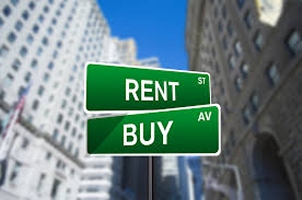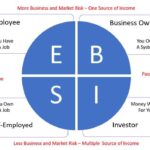The question, “Is it better to lease office space or own it?” is at the core of many business plan decisions that I review. On the one hand, I never advise owning real estate for startups because they have a high rate of failure. However, it is a decision that should not be undertaken lightly for more established firms with discretionary income.
Let’s say you own a small business and you currently rent your office space. Let’s further assume that you have accumulated $100,000 in cash reserves and savings you could use for a down-payment if you decided to buy your office space.
As you pay your rent at the end of each month, you might say to yourself, “Why should I keep putting money into my landlord’s pocket when I could be putting that money into my own pocket if I owned the building?” Since you have enough money for a down-payment for a small office building it sounds like a no-brainer, right? Not exactly.
As it turns out, you might be better off paying rent than “owning” your own building. To understand if it is better to own or rent requires analyzing the situation using an investment approach rather than an ownership approach.
Let’s assume you are not just sitting on your $100k cash reserves/savings but investing your surplus cash to earn at least a modest return. Even a 1.5% return is $1.5k, so if you decide to buy an office building, you would be giving up this income. This loss of income must also be factored into the buy vs. rent decision.
Most people assume that if it made sense to own the underlining real estate, the business itself would simply own the property. Here again, this assumption is most often wrong.
If the building is owned by the business, the return on equity would be effectively 0%. However, the assumption is that your occupancy cost would presumably be less, making the company more profitable. Sounds good on the surface but that is before adding in the tax considerations and risk.
In addition to making monthly principal and interest mortgage payments (PI), don’t forget there are still expenses such as insurance, property taxes, maintenance, snow removal, etc. that you as the owner will have to cover that is often included as part of your rent. This risk exposure of unexpected maintenance or other unexpected expenses subjects the business to potential cash flow problems as issues arise.
Moreover, when you own the building, the capital invested as part of the down payment is no longer liquid, and as such, could not be easily withdrawn and used for another purpose. For example, you could no longer use this money to take advantage of a new opportunity. In effect, your cash will have become a sunk investment.
When it comes to taxes, the total amount of rent is 100% deductible as a business expense. However, when the business owns the real estate, only the interest portion of the mortgage payment is tax deductible while the principal portion reduces the company’s liability thereby increasing the company’s equity. Over time you will likely increase the equity in your business through periodic principal payments, inflation, and appreciation, provided you maintain the property and the real estate market conditions remain positive. However, it should be noted that when you own real estate, systemic market risk from rising interest rates charged by lenders can eat into your equity in the form of property value depreciation.
When you own real estate, that portion of the value apportioned to the improvements (not the land) can lower the business’s taxable income through what is known as depreciation. However, it should be noted that commercial properties depreciate over a 39 year period as compared to residential real estate that depreciates over a 27.5 year period, so the deduction you can claim each year is much lower on commercial vs. residential real estate.
Moreover, loan terms (typically 30 years for your residential property) are accelerated for commercial property and are often only 15 or 20 years. Therefore, your PI payment will be higher and your depreciation rate will be longer than what you might be accustomed to with residential real estate.
When the business itself owns the real estate, the additional profit resulting from lower business occupancy costs will be subject to self-employment (SE) taxes for all entities not taxes as a c-corp. Consequently, a far more tax efficient way for small businesses to own the commercial real estate is to own the building in a separate LLC, which you would own personally. Of course, you should have a rental agreement between your business and your LLC that holds the real estate that stipulates the rent the business is to pay each month.
While the profit from your business is subject to SE tax, the rent you personally receive from the business is considered passive income and is not subject to FICA. Therefore, you are taxed 15.3% less when the income is considered passive, which is a HUGE difference.
In summary, when you have a business that throws off a lot of taxable income, you can charge the business a premium rent. You thereby move a share of your business profits from a business vehicle that subjects its profits to SE taxes to a real estate holding business that taxes profits as passive income. In the end, this approach saves you 15.3% in income taxes. As they say, it is not how much you make that is important, but how much you can keep in the end.
As you can see, the justification for owning vs. renting isn’t as simple as it may seem. One must consider taxes, investment, systemic risks, and alternative ROI scenarios to determine the real value of owning vs. renting as a business.
Is it better for your business to rent or own your commercial real estate?












